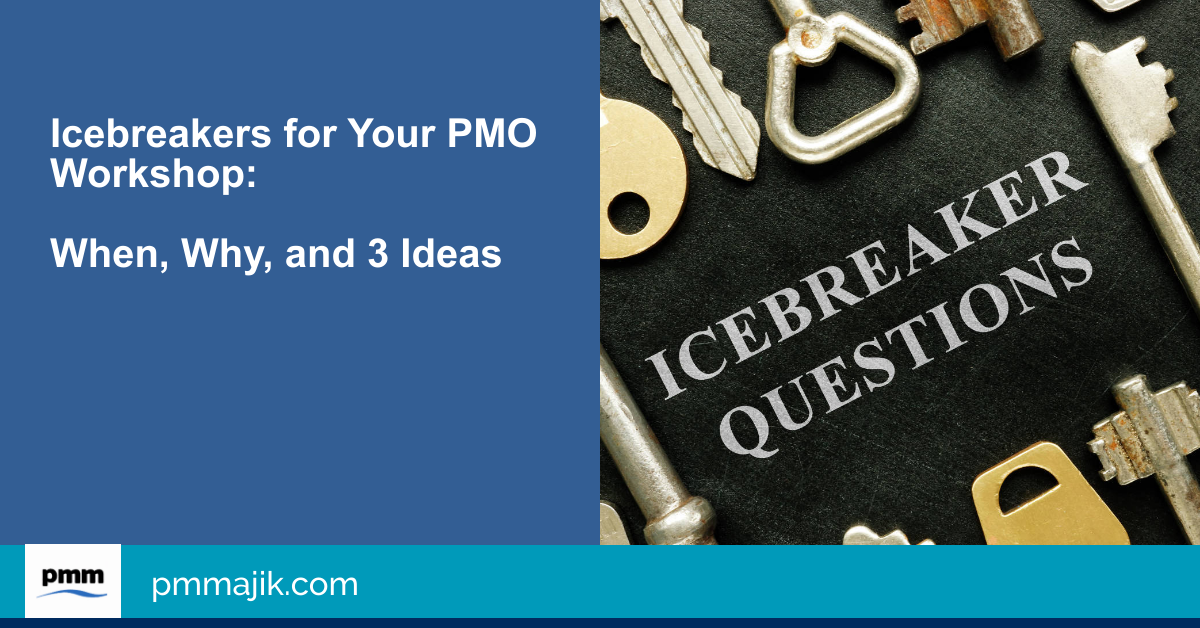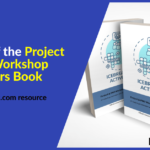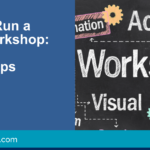Your project management office (PMO) should be embracing the use of workshops for particular tasks. An integral element of a workshop is icebreakers; the when, why and how will be covered here to make sure they get off to the right start.
When planning your PMO workshops, you should make sure that there is an icebreaker included. They can sometimes get a bad rap in the corporate world, but they are helpful in getting the conversation started.
To help you understand everything you need to know about icebreakers, we’re going to look at:
- The right circumstances to use a workshop
- The purpose of icebreakers during a PMO workshop
- Some workshop-focused icebreaker ideas to use
When do I need to use an icebreaker in a workshop?
An icebreaker is there to bring down barriers between the participants of the workshop. You should include an icebreaker when running a workshop when:
- The people in the workshop don’t know each other
- Attendants haven’t directly worked with each other before
- When you need to get people to collaborate quickly
- If there are unfamiliar topics being discussed in the workshop
This means that if you’ve pulled together the project team to get a bottleneck resolved in a workshop session, you may not need to include an icebreaker.
Why are icebreakers important to a workshop?
You need to be using icebreakers when there is, quite literally, ice to break. When you have people from different projects or departments, across pay grades and even locations, you need to make sure everyone is comfortable.
Just getting the conversation started can be awkward until you bring people together to talk on a guided topic.
Even if you’ve brought together people who are professionally acquainted already, you may want to run an icebreaker to focus on the task at hand. Everyone should already know what the goal of the workshop is, but kicking off the programme with a task-based icebreaker can focus the mind and get the ideas flowing.
Three ideas for workshop-focussed icebreakers
Most people will be familiar with the concept of personal icebreakers such as “two truths and a lie”. These do have their place in workshops, but using ones that bring about the workshop topic can get to the point of the exercise sooner.
Idea 1: One Word
With One Word, you can start to get the crux of the issue your icebreaker is addressing. It can focus everyone on the problem and lead into the solutions element of the session.
For One Word, you need to split your workshop participants into pairs or small groups. Ask them to think about the task at hand and describe it in one Word, for example, “describe the current process in one word” or “what is one word to describe to the reason for the current bottleneck”.
Use these words to understand where you need to begin when resolving the workshop.
Idea 2: My First Job
Although this icebreaker for a workshop is also a personal one where participants share details about their lives, it can also bring focus to the task at hand.
Give each person in the PMO workshop a piece of paper to write down their first job title and the work that they did. Each person is then asked to share the information with the group.
This can provide fresh and valuable information about the skills and knowledge that each person can bring to the table. You can make it more tailored to the workshop by asking about the first project they ever worked on in their career or in the organisation.
Idea 3: The Human Spiderweb
Creating a Human Spiderweb can help map out the interdependencies that the project or task relies upon. It’s very much an in-person icebreaker and is hard to replicate entirely online.
Give one participant a ball of yarn and ask them to briefly describe how they work within the project. They hand the string of yarn to the next person, who talks about how their work will interlink with the person who gave them the yarn. Continue this until everyone has talked about their work.
This should help people understand the way they actually work together. The facilitator will also get a deeper understanding of where organisational issues might be if roles and interdependencies aren’t easily spoken about.
Using icebreakers in PMO workshops
Icebreakers have a bad reputation in the world of workshops. When you use ones that focus on the task at hand, you can save people from sharing too much personal information and keep your workshop on track.






